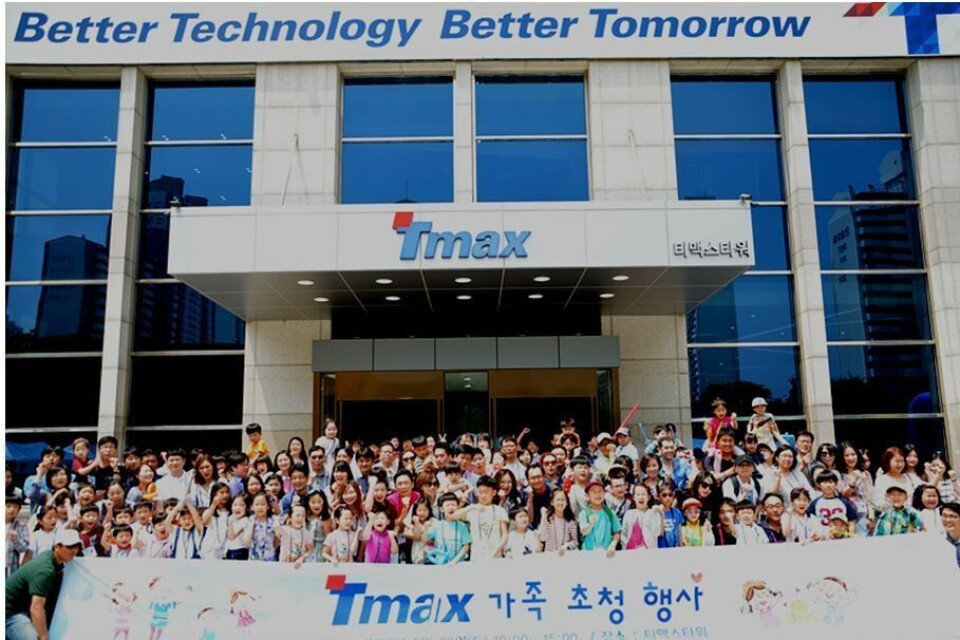
Tmaxsoft is using clear licensing to woo Oracle database users
IDG NEWS SERVICE: Its Tibero database promises simpler terms and a sweeter deal.
It's no secret that Oracle's aggressive licensing tactics can be a source of considerable pain for its customers, and that's just where TmaxSoft is betting it has an edge.
Not only does the company promise users of its Tibero database roughly half the license fees, it also uses a licensing model so transparent that it recently became the first to be verified by the Campaign for Clear Licensing.
Tibero's price list is "a single page and very easy to understand," said Martin Thompson, chief agitator for CCL, when the verification was awarded late last year. "The prices and products are clearly set out, and there are no hidden extras that customers need to look out for.”
The software's End User License Agreement is only nine pages long, Thompson added.
Nearly 150 companies have already replaced Oracle databases with Tibero for applications including transaction processing, decision support, and big data, TmaxSoft says, and it's in the midst of a major push to increase that number dramatically. Founded about 20 years ago in South Korea as a middleware provider, it now has ambitious plans for the rest of the world.
"We've been extremely profitable in Asian markets," said Joshua Yulish, TmaxSoft's U.S. president and CEO, in a recent interview. "Our vision is to rival some of the biggest software players out there, and our biggest advantage is Oracle."
Tibero is more than 90 percent compatible with Oracle's database and provides Oracle software clustering as well as support for Oracle commands, data types, and SQL extensions. In most cases, migrations from Oracle to Tibero take about six weeks, TmaxSoft says.
The software can run on-premises or in the cloud, and it boasts support for operating platforms including Linux and Windows on x86, AIX on PPC, and Solaris on SPARC. Just recently, Tibero 6, the latest version of the relational database management system, was endorsed by VMware as "VMware Ready" and is supported on VMware vSphere 6 for production environments.
"Customers have always had a number of alternatives to Oracle’s database, such as Microsoft, IBM, and various open-source alternatives," said analyst Frank Scavo, president of Strativa. "What is interesting about Tibero is that they are apparently trying to make their database as plug-compatible with Oracle as possible, at a significantly lower price."
Pain relief on the licensing front could be another key advantage.
"It is very easy for Oracle to find customers to be noncompliant," Scavo said. "If Tibero really has simplified the licensing, that makes it all the more attractive."
In many ways, TmaxSoft's competitive pitch "sounds like a page out of the Amdahl/IBM playbook in the mainframe days, with Oracle playing the part of IBM and Tibero playing the part of Amdahl," Scavo added. "As I recall, IBM salespeople suddenly became a lot more flexible when customers made it clear they were considering Amdahl."
TmaxSoft claims roughly 1,600 Tibero implementations around the world. Though most of them are still in South Korea, China, and Japan, the company recently expanded into Singapore and India as well as Europe and other Western markets. Today, the company operates officially in Australia, Brazil, Canada, Russia, Turkey, the U.S., and the U.K. as well. It's also teamed up with partners including IBM, Amazon Web Services, Red Hat, Hewlett Packard Enterprise, CSC and Infosys.
Coming up next is more global expansion, including 10 to 15 additional countries, Yulish said. "We see Europe as a big opportunity, plus expanding our U.S. presence."
Along the way, the company is targeting both enterprises and smaller companies, along with government agencies. "These people are very interested in making a change," Yulish said.
TmaxSoft offers an interesting model, said Carl Olofson, a research vice president with IDC.
"They are one of several smaller players going after the Oracle market," he said. "I consider them especially attractive to those who do not use Oracle’s full feature set, or who don't have databases on the most demanding end of the size, complexity, and performance scale."
Oracle did not respond to a request for comment for this story.






















